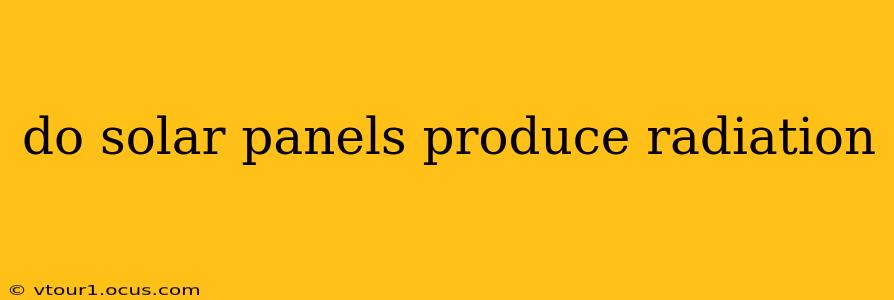Do Solar Panels Produce Radiation? Understanding the Facts
The question of whether solar panels produce radiation is a common one, fueled by a natural concern about the technology's potential impact on health and the environment. The short answer is: solar panels do not produce ionizing radiation, the harmful type associated with things like X-rays and nuclear power. However, they do produce a very low level of non-ionizing radiation, and understanding the distinction is key.
What Type of Radiation Do Solar Panels Produce?
Solar panels operate by using photovoltaic (PV) cells to convert sunlight into electricity. This process itself does not involve the creation of ionizing radiation. The radiation emitted by solar panels is non-ionizing radiation, primarily in the form of infrared (IR) radiation and a negligible amount of radio frequency (RF) radiation.
-
Infrared (IR) Radiation: This is the same type of radiation that we feel as heat from the sun. Solar panels absorb a significant portion of the sun's IR radiation, converting it into electricity, but some is emitted as heat. This heat is similar to the heat given off by any other electrical device. It's not harmful at the levels produced by solar panels.
-
Radio Frequency (RF) Radiation: Some microinverters used in solar panel systems can emit a tiny amount of RF radiation, but it's generally considered to be well below levels considered harmful by health organizations like the World Health Organization (WHO). These levels are far lower than those emitted from everyday devices like cell phones or Wi-Fi routers.
Are Solar Panels Safe?
Based on current scientific understanding and extensive research, solar panels are considered safe for human health and the environment. The levels of non-ionizing radiation they emit are significantly below those known to cause any adverse health effects.
What About the Materials Used in Solar Panels?
While the operational process of solar panels doesn't produce harmful radiation, it's important to consider the materials used in their manufacturing and disposal. Some solar panels contain trace amounts of heavy metals, but responsible manufacturers and recycling programs are working to mitigate any potential environmental concerns.
How Does Solar Panel Radiation Compare to Other Sources?
The amount of non-ionizing radiation from solar panels is minuscule compared to other everyday sources like sunlight itself, electronic devices, and even microwave ovens. In fact, the amount of radiation emitted from a typical solar panel installation is often far less than the natural background radiation we're exposed to every day.
Can Solar Panels Cause Cancer or Other Health Problems?
There is no credible scientific evidence linking solar panel radiation to cancer or other health problems. The levels of non-ionizing radiation emitted are far too low to pose a significant health risk.
Are There Any Regulations Regarding Solar Panel Radiation?
Many countries and regions have regulations and standards in place for the safety and emission levels of solar panels and related equipment to ensure they meet strict safety guidelines. These standards help minimize any potential risks.
In conclusion, while solar panels do emit a very small amount of non-ionizing radiation, this is not harmful and is far outweighed by their environmental benefits. The benefits of solar energy in reducing carbon emissions and mitigating climate change significantly outweigh any negligible radiation concerns.
